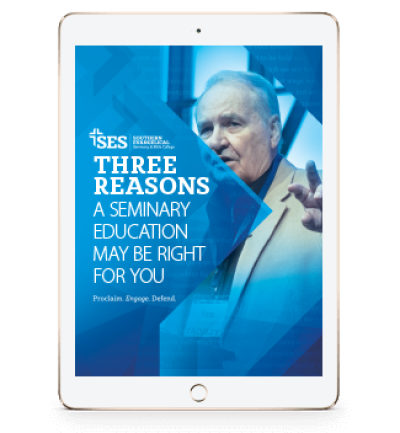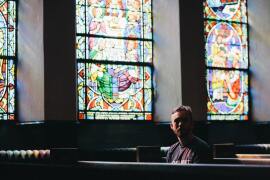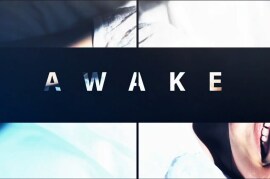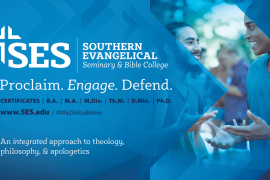Tackling Racism and the Bible

In a year of exploding racial tension, Dr. Harold Felder is finding himself in more conversations about the very thing he studied for his Doctorate of Ministry project at Southern Evangelical Seminary (SES) five years ago: racism and the Bible.
Does the Bible condone slavery? Does it teach that black people are inferior? Those are questions he hears all the time—and he’s made it his personal mission to address them head on. Just this year, he’s spoken at a couple of churches on this topic.
“Some people don’t even want to hear about Christianity because they associate Christianity with slavery and with racism. My emphasis has been to tear down those walls,” he said.
For some, the word “apologetics” might bring to mind discussions on God’s existence and the resurrection. While those are critical, apologetics also has a place in our everyday interactions on social topics, such as race and slavery.
“One of the things you learn at SES is that your view of God affects everything else in your life,” Harold said. “Not only is Christianity not supportive of slavery, but it was the tenets of Christianity that are responsible for the abolition of slavery worldwide. It wasn’t until Christianity came along and promoted this idea of man being made in the image of God that sparked the abolition movement.”
Harold wears many hats—a senior IT analyst by day, as well as the founder of Giving An Answer ministry in Charlotte, North Carolina. He also heads Christian education at his church and serves as dean of his church’s Bible Institute. It’s in that last role that he’s teaching a class this semester called Urban Apologetics. “The curriculum needs to reflect the people we are trying to reach, but it’s based on the fundamentals that I learned at SES,” he said.
As an atheist-turned-Christian, Harold speaks to people not only about physical freedom in terms of slavery, but about spiritual freedom as well. Growing up, Harold believed in God, but gave up his faith when he joined the Navy at 21. “I knew that the idea of God would interfere with the way I wanted to live my life,” he said, describing himself as a foul-mouthed drinker who chased women. It wasn’t until a young woman led him to Christ later on that his eyes were opened to the grip sin had on him.
Harold eventually quit his job as a NASA software engineer to study under Dr. Norm Geisler at SES and learn how to respond to some of today’s tough questions. Years later, he uses his SES education to show others that it is incompatible to support Christian values while also embracing cultural values that go against your faith.
With ongoing racial issues, as well as the recent contentious election, Harold is talking to many in his circle about letting God’s Word—not emotions or misleading media—be their guide. “If we focus on emotions, we can be led astray by anyone who is eloquent enough to pull on our emotional heartstrings,” he said. Harold also wrote The African American Guide to the Bible that presents a comprehensive biblical view of topics of interest to African Americans and clarifies racial issues for white people.
More From Harold: Listen to his talk on slavery and the Bible from the 2018 National Conference on Christian Apologetics here.

Learn More About SES: Take a moment right now to download our FREE ebook Three Reasons a Seminary Education May Be Right for You. Regardless of your particular vocation or ministry context, sound apologetics that is undergirded with good philosophy and theology is a must for doing the heavy lifting of removing the hurdles that prohibit many in our post-Christian society from considering the Gospel. That is the integrated training you will find at SES.
Our culture is more hostile to Christianity, even though it understands Christianity less than ever before. To effectively engage with the culture, you will need a deeply integrated theology, philosophy, and grounding in apologetics—the bedrock of a degree from Southern Evangelical Seminary & Bible College. Learn More






